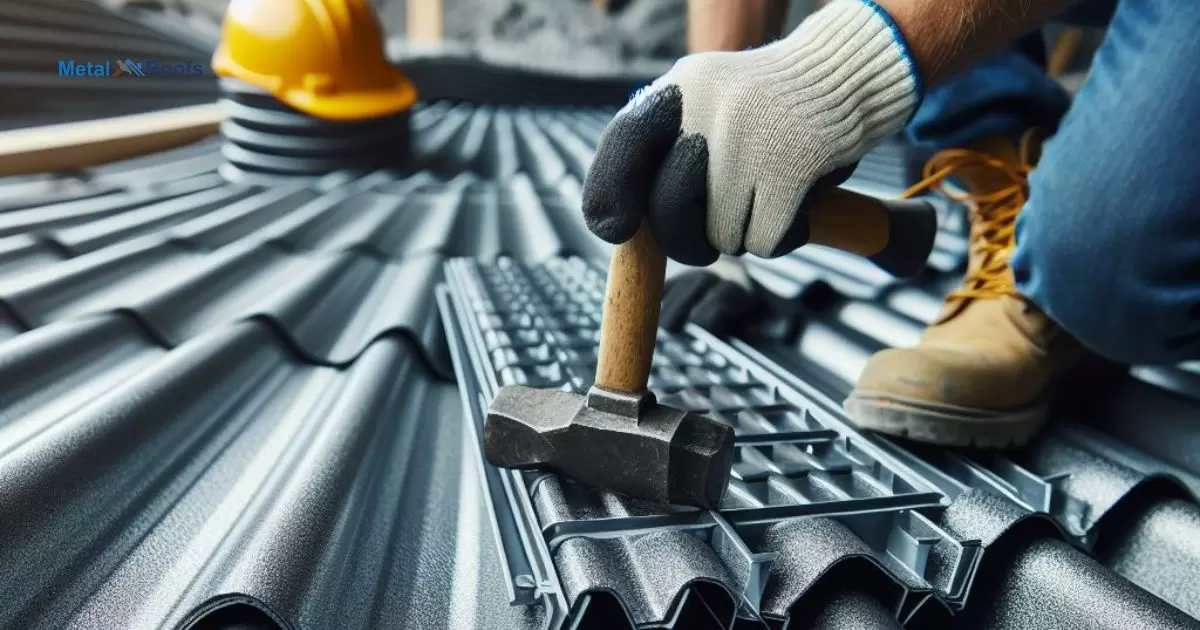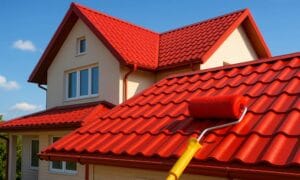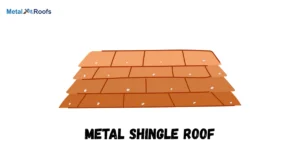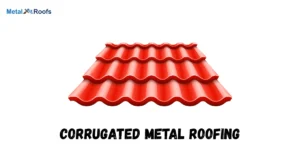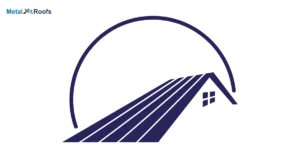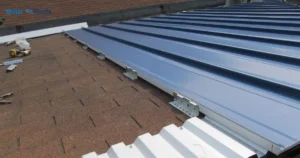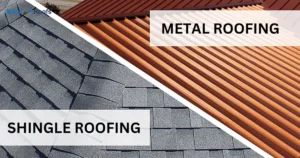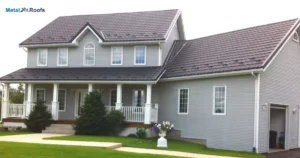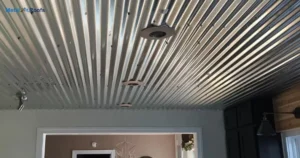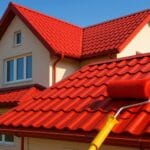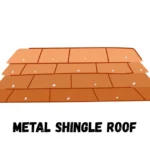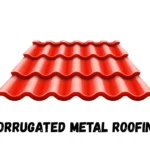Soundproofing metal roof blocks noise. It uses insulation and barriers. Stops rain and wind sounds too. Improves indoor acoustics greatly. Gives peaceful living environment. Increases home value and comfort. Requires proper material choices. Proper installation is crucial.
Metal roof amplifies every sound. Raindrops, wind gusts, you name it. Soundproofing metal roof is key. Insulation and barriers block noise. Enjoy peace and quiet indoors. No more sleepless nights. Improved acoustics enhance life quality. Don’t let noise control you.
Metal roofs can be noisy due to thermal expansion. Soundproofing and proper insulation are essential to minimize metal roof thermal expansion noise during installation.
Key Takeaways
- Pinpoint noise origins affecting the metal roof.
- Use materials like fiberglass or foam between panels and ceiling.
- Consider mass-loaded vinyl for enhanced sound blocking.
- Install panels or tiles to absorb indoor noise.
- Mount to isolate ceiling from roof vibrations.
- Explore green roof options for natural insulation.
How to Soundproof a Metal Roof?
To soundproof a metal roof, start by identifying the sources of noise like rain or hail. Insulate with materials such as fiberglass or foam between the panels and the ceiling. Consider using mass-loaded vinyl for added sound blocking. Install acoustic panels or tiles inside to absorb noise.
Insulate the Attic
| Insulation Material | Benefits |
| Fiberglass | Cost-effective, easy to install |
| Cellulose | Environmentally friendly, good thermal performance |
| Spray Foam | Provides air sealing, high R-value |
| Mineral Wool | Fire-resistant, excellent sound absorption |
| Radiant Barrier | Reflects radiant heat, reduces energy bills |
To further soundproof a metal roof, insulating the attic is crucial. Begin by adding insulation between the attic floor and the living space below. Opt for materials like fiberglass or cellulose insulation for effective noise reduction.
Insulate the Walls
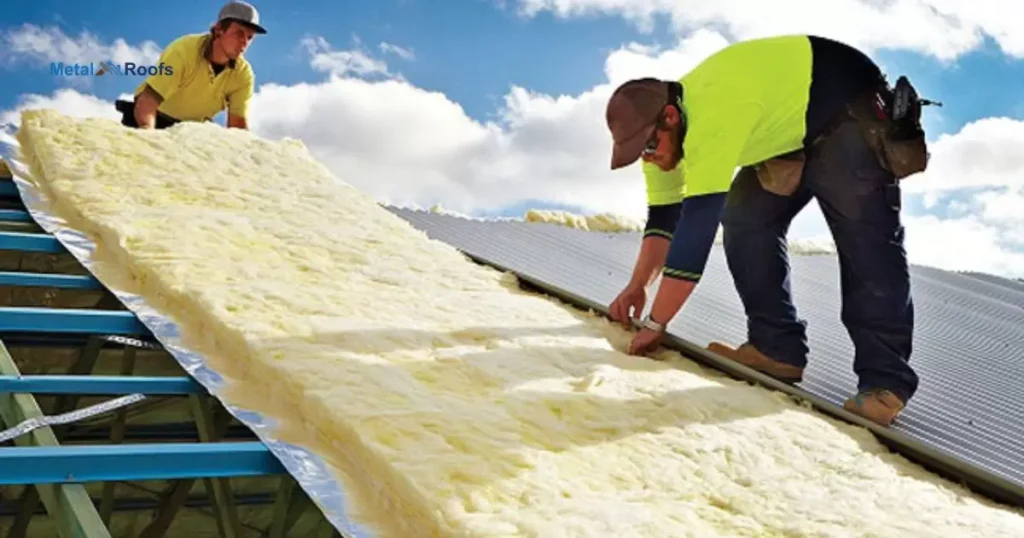
Insulating the walls is crucial when soundproofing a metal roof. Start by selecting appropriate insulation materials like fiberglass or foam. Install the insulation between the wall studs to minimize sound transmission. Ensure a tight seal to prevent any gaps where sound could leak through.
Cover or Insulate the Ceiling
To further soundproof a metal roof, covering or insulating the ceiling is essential. This step helps absorb sound waves and reduces noise transmission. Consider using materials like fiberglass or foam insulation between the ceiling and the roof panels.
Use Roof Underlayment
To soundproof a metal roof effectively, utilize roof underlayment. This essential layer acts as a barrier against noise transmission and enhances insulation. Opt for high-quality materials like rubberized asphalt or synthetic options. Ensure complete coverage for comprehensive sound reduction benefits.
Choose the Right Shape for Your Roofing Material
When soundproofing a metal roof, choosing the right shape for your roofing material matters. Opt for materials that complement the desired acoustics, like corrugated metal or standing seam panels. Ensure the roof’s shape minimizes sound reflection and transmission.
Ensure Secure Roof Fasteners
For ensuring secure roof fasteners, begin by selecting appropriate fasteners for the metal roof. Use screws specifically designed for metal roofing to prevent loosening over time. Ensure proper installation with tight fastening to minimize potential noise from loose components.
Maintain Your Roof
To maintain your roof, regularly inspect for damage or loose components. Clear debris like leaves or branches to prevent blockages and water buildup. Repair any leaks promptly to prevent further damage.
Metal Roof Noise Reduction and Soundproofing
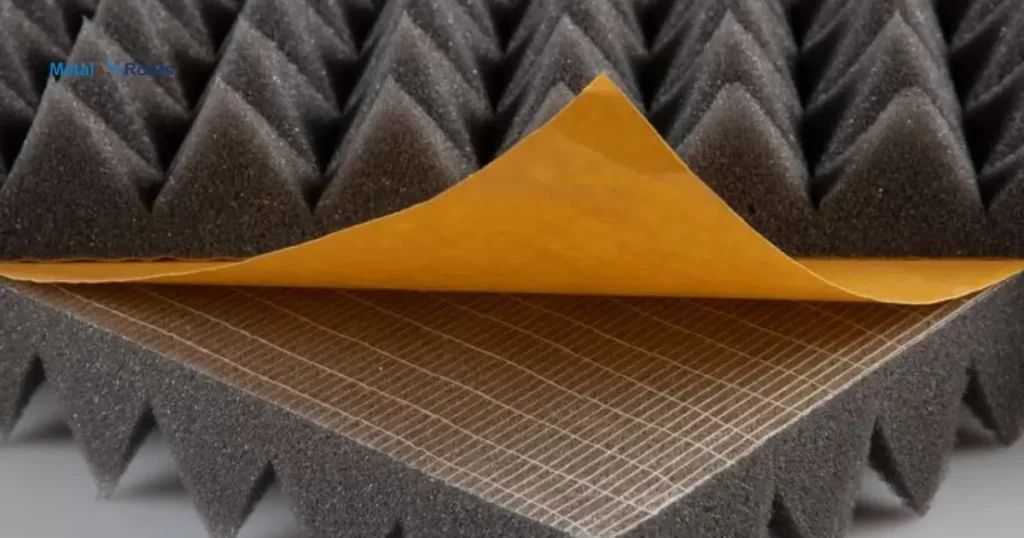
To reduce noise from a metal roof, identify its main sources. Insulate the roof with materials like fiberglass or foam. Consider mass-loaded vinyl for extra sound blocking. Install acoustic panels indoors to absorb noise. Use resilient channels to isolate the ceiling. Explore green roof options for natural insulation.
Add Sound Deadening for Impact Noise
To enhance metal roof noise reduction, address impact noise by adding sound deadening materials. Consider installing rubber mats or foam padding beneath the roofing structure to absorb impact vibrations.
Soundproof Existing Walls with Added Density
To further reduce noise, consider soundproofing existing walls by adding density. Use materials like mass-loaded vinyl or soundproof drywall. Increase the mass of the walls to block sound transmission effectively. Install these materials on interior walls facing the metal roof.
Seal Gaps with Acoustic Sealant
Sealing gaps with acoustic sealant is crucial for effective metal roof noise reduction. Choose a high-quality sealant suitable for outdoor use. Apply it carefully to any openings or joints to prevent sound leakage.
Improve Insulation Material
To enhance insulation, opt for thicker materials like dense fiberglass or high-density foam. Choose insulation with a high NRC rating for better sound absorption. Ensure proper installation to maximize effectiveness.
Metal Roof Soundproofing Guide
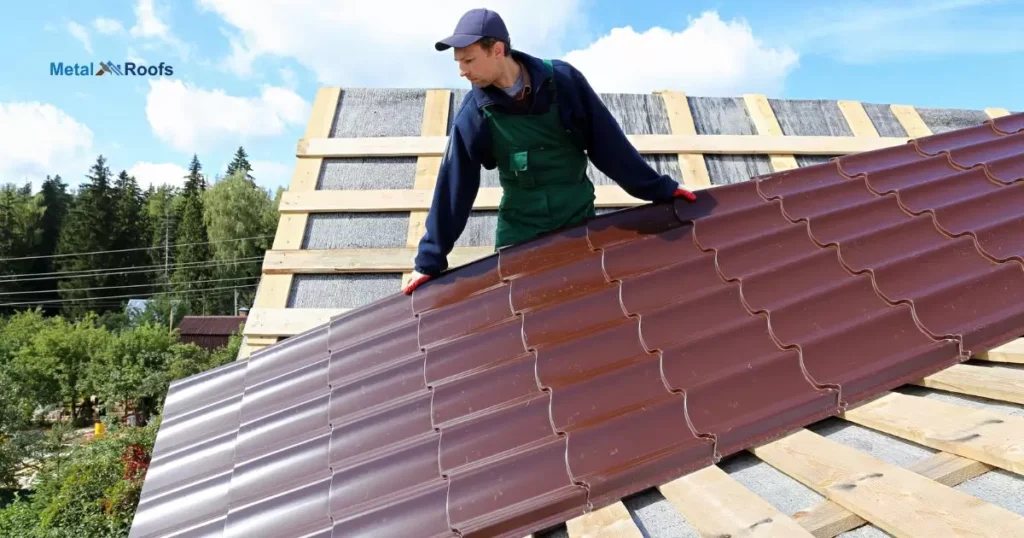
To soundproof a metal roof, first, identify what’s causing the noise. Rain, hail, or external sounds might be the culprits. Then, insulate using materials like fiberglass or foam between the panels and ceiling. Mass-loaded vinyl, placed beneath the roof, can further block out noise effectively.
Install acoustic panels or tiles on the interior to absorb sound waves and improve the overall acoustics. Consider mounting resilient channels to isolate the ceiling from roof vibrations. If feasible, explore green roof options for natural insulation benefits.
Rain Noise Control
To control rain noise, start by identifying where it’s coming from. Insulate your roof using materials like fiberglass or foam. Consider adding mass-loaded vinyl underneath for better sound blocking.
If noise persists, install acoustic panels or tiles on the interior ceiling to absorb sound waves. Ensure there are no gaps or cracks where sound can leak through. Consulting with experts can provide tailored solutions for effective rain noise control.
How can insulation be used to soundproof a metal roof?
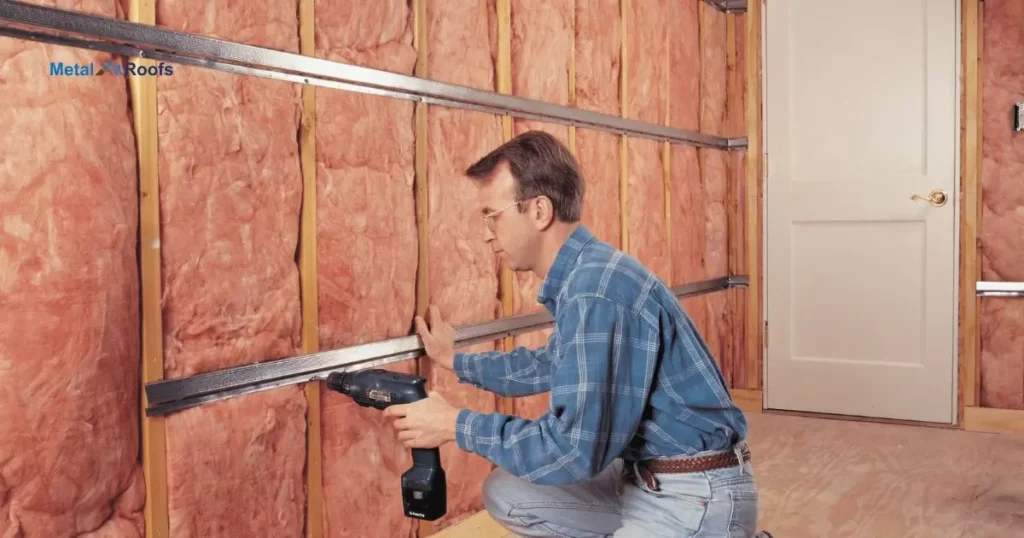
If you’re experiencing attic sounds like thuds, knocking, loud bangs, or creaking noises coming from your metal roof, soundproofing becomes essential to create a peaceful indoor environment. Here are some strategies to effectively soundproof your attic and ceiling:
Insulation: Start by adding insulation materials like fiberglass or foam between the roof panels and the ceiling. These materials absorb sound vibrations, reducing noises from rain, hail, and other external sources.
Mass-loaded Vinyl Sheets: Consider installing mass-loaded vinyl sheets beneath the metal roof. These sheets add an extra layer of sound blocking, minimizing thuds and banging noises.
Acoustic Panels or Tiles: Enhance sound absorption by incorporating acoustic panels or tiles on the interior ceiling. These panels help dampen sound waves, reducing echoing and reverberations from the attic.
Resilient Channels: Use resilient channels to isolate the ceiling from the vibrations caused by the metal roof. This isolation prevents the transmission of thuds and popping noises into the living spaces below.
Sealing Gaps and Cracks: Ensure thorough sealing of any gaps or cracks in the attic and ceiling. Proper sealing prevents sound leakage and enhances the overall effectiveness of soundproofing measures.
Consult Acoustical Engineers: For customized and effective soundproofing solutions, consult with acoustical engineers. They can assess your attic’s specific needs and recommend tailored strategies for optimal soundproofing performance.
By implementing these soundproofing techniques, you can significantly reduce attic sounds such as thuds, knocking, banging noises, and roof creaking, creating a quieter and more comfortable indoor environment.
Frequently Asked Questions
Can you soundproof a metal roof?
Yes, you can soundproof a metal roof. Start by identifying noise sources like rain or hail. Insulate using materials like fiberglass or foam.
How do you reduce noise in a steel roof?
To quiet a steel roof, first, locate noise sources like rain or external disturbances. Install insulation between panels and ceiling, using materials like fiberglass or foam.
How do you fix a noisy metal roof?
To fix a noisy metal roof, start by finding the sources of the noise. Insulate between the roof and ceiling using materials like fiberglass or foam.
Conclusion
Soundproofing a metal roof involves several effective methods. Insulating between the metal roofing and ceiling, sound vibrations can be absorbed. Adding materials like mass-loaded vinyl or acoustic panels can further reduce noise. Sealing gaps and cracks and consulting professionals ensure optimal results.
Exploring alternative options like green roofs provides insulation benefits. Constructing a secondary roof structure with a gap in between can significantly minimize sound transmission. Combining these approaches tailored to your specific situation yields the best outcomes.
